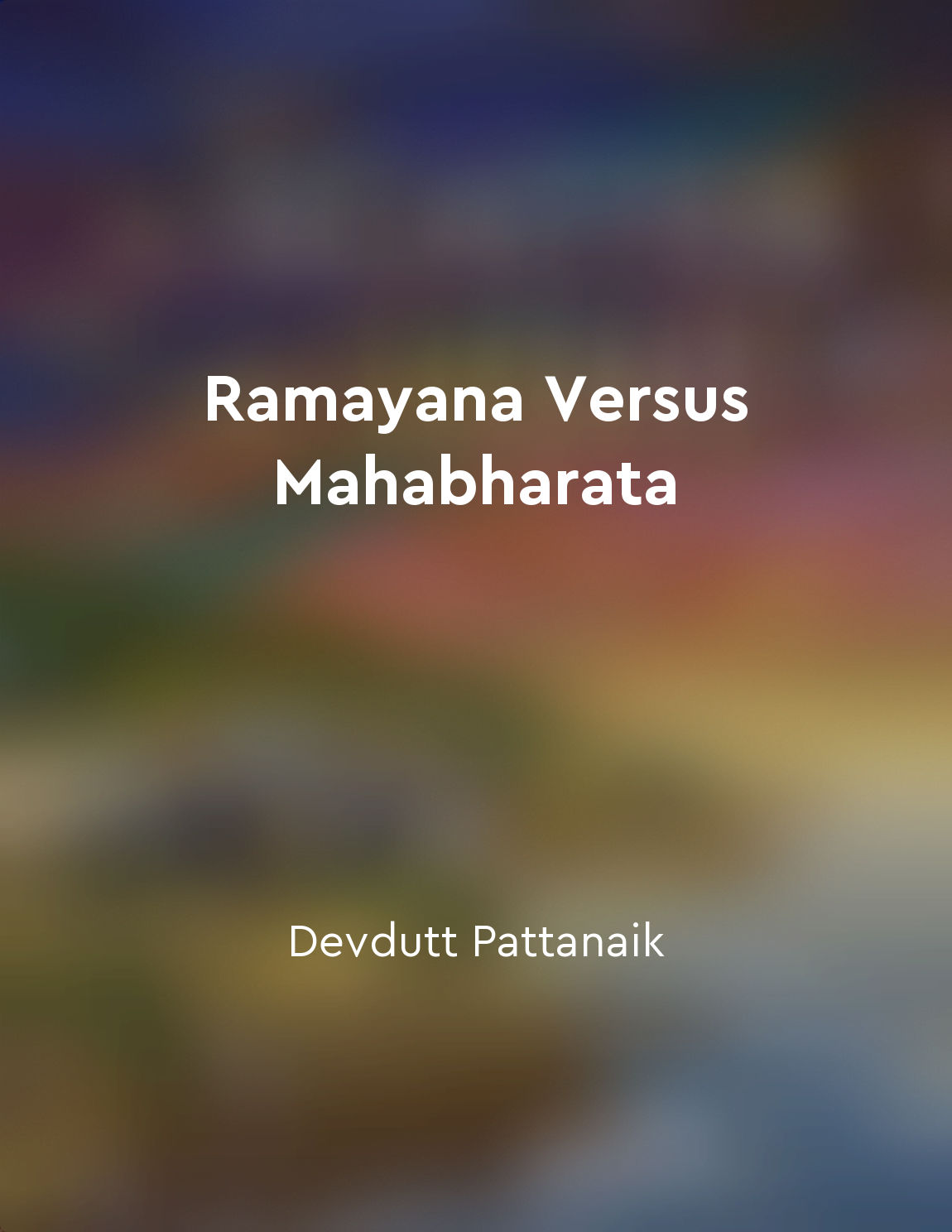Fall of Bhishma from "summary" of Mahabharat Ki Kahaniyan by Harish Sharma
The great warrior Bhishma, known for his unparalleled skills and unwavering loyalty, played a crucial role in the epic battle of Mahabharata. Despite his wisdom and prowess, Bhishma faced his downfall due to his adherence to a vow of celibacy and loyalty to the throne. This vow prevented him from becoming the king himself and led to a series of events that ultimately resulted in his defeat on the battlefield. Bhishma's oath of celibacy stemmed from a tragic incident in his youth, where he renounced marriage to ensure his father's happiness. This decision, while noble, had far-reaching consequences as it prevented him from having any heirs and securing his lineage. As a result, Bhishma remained bound by his vow throughout his life, leading to his eventual downfall. During the great war of Kurukshetra, Bhishma's loyalty to the throne of Hastinapur placed him in a difficult position. Despite his knowledge of right and wrong, he chose to fight on the side of the Kauravas, the rightful heirs to the throne. This decision, driven by his sense of duty and honor, ultimately led to his defeat at the hands of the Pandavas, who fought for justice and righteousness. Bhishma's fall on the battlefield was not just a physical defeat but also a moral one. His unwavering loyalty to the throne and his adherence to his vow of celibacy blinded him to the truth and clouded his judgment. In the end, Bhishma's downfall serves as a cautionary tale about the dangers of blind loyalty and the consequences of forsaking personal desires for the sake of duty. Despite his defeat, Bhishma's character remains a complex and multidimensional figure in the epic of Mahabharata. His fall serves as a reminder of the importance of balance between duty and personal fulfillment, and the need to question traditional beliefs and norms in the pursuit of truth and righteousness. Bhishma's legacy endures as a symbol of sacrifice, honor, and the consequences of unwavering loyalty.Similar Posts

Ramayana glorifies Rama, Mahabharata humanizes Krishna
Ramayana portrays Rama as the ideal man, the perfect son, husband, and king. He is noble, righteous, and always upholds dharma....
Hanuman vows to protect Sita at all costs
When Hanuman saw Sita in captivity, his heart swelled with compassion. He was filled with the desire to protect her, to shield ...

The legacy of a hero
The legacy of a hero is not merely a tale of valor and triumph. It is a story that transcends time and space, inspiring generat...

Honor and respect
In the great epic of Mahabharata, the concept of honor and respect is deeply woven into the fabric of the narrative. Throughout...

The wheel of karma
The wheel of karma is a concept deeply woven into the fabric of existence, a fundamental truth that governs the cycles of life ...
The cunning strategies of Duryodhana
Duryodhana, the eldest Kaurava prince, was known for his cunning strategies in the epic of Mahabharata. He was a master manipul...

Exile in the forest
When the Pandavas lost the game of dice to the Kauravas, they were forced into exile for thirteen years. During this time, they...

The interconnectedness of all beings
The ancient scripture of the Mahabharata reveals a profound truth that has echoed through the ages - the intricate web of conne...

The game of dice
In the great epic Mahabharata, the game of dice plays a critical role in shaping the destiny of the Pandavas, the noble and vir...
